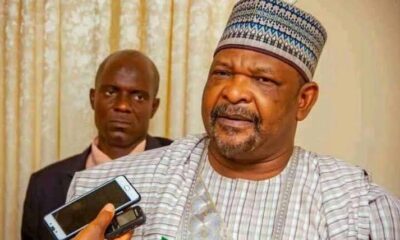The Budget Office of the Federation has declared that the total budget deficit of the nation is set to hit N47.43tn.
A budget deficit happens when expenses exceed revenue and according to the data, Nigeria has more expenses than revenue
Investors King confirms that the budget data analysis showed that the actual budget deficits and projections for 2015, 2016, 2017, 2018, 2019, 2020, 2021, 2022, and 2023 fiscal years and revealed that deficit financing has risen by 370.54 percent from N2.41tn in 2016 to N11.34tn in 2023.
The budget office expects the deficit to hit N8.17tn for 2022 although the total deficit for the year has not been released as they noted that a higher figure is expected for the 2023 fiscal year.
The country’s budget deficit to the GDP ratio had risen from 1.69 per cent in 2015 to 2.37 per cent in 2016. It increased to 2.85 percent in 2018, 2.92 per cent of GDP in 2019. The Federal Government expects the deficit-to-GDP ratio to be 5.03 percent of the 2023 budget.
The Minister of Finance, Budget and National Planning, Zainab Ahmed, disclosed that the government was struggling to raise revenue for its expenditure in a document titled ‘Public Consultation on the Draft 2023 – 2025 MTFF/FSP.’
“Revenue generation remains the major fiscal constraint of the federation. The systemic resource mobilisation problem has been compounded by recent economic recessions.”
“If we just depend on the revenues that we get, even though our revenues have increased, the operational expenditure of the government, including salaries and other overheads, is barely covered or swallowed up by the revenue.
“So, we need to borrow to be able to build these projects that will ensure that we’re able to develop on a sustainable basis. Nigeria’s borrowing has been of great concern and has elicited a lot of discussions. But if you look at the total size of the borrowing, it is still within healthy and sustainable limits.”
Investors King recently reported that the total borrowing from the CBN through the Way and Means increased from N17.46tn in December 2021 to N23.77tn in October 2022 and that the recent proposed borrowing rejected by the National Assembly will take it to N77tn.
The World Bank had also forewarned the Federal Government that continue borrowing will see the nation use 62 percent of its revenue to pay loan interest by 2027.

 Forex3 weeks ago
Forex3 weeks ago


 Naira2 weeks ago
Naira2 weeks ago
 Billionaire Watch2 weeks ago
Billionaire Watch2 weeks ago




 Naira2 weeks ago
Naira2 weeks ago




 Naira2 weeks ago
Naira2 weeks ago




 Naira1 week ago
Naira1 week ago




 Naira3 weeks ago
Naira3 weeks ago




 Naira4 weeks ago
Naira4 weeks ago




















